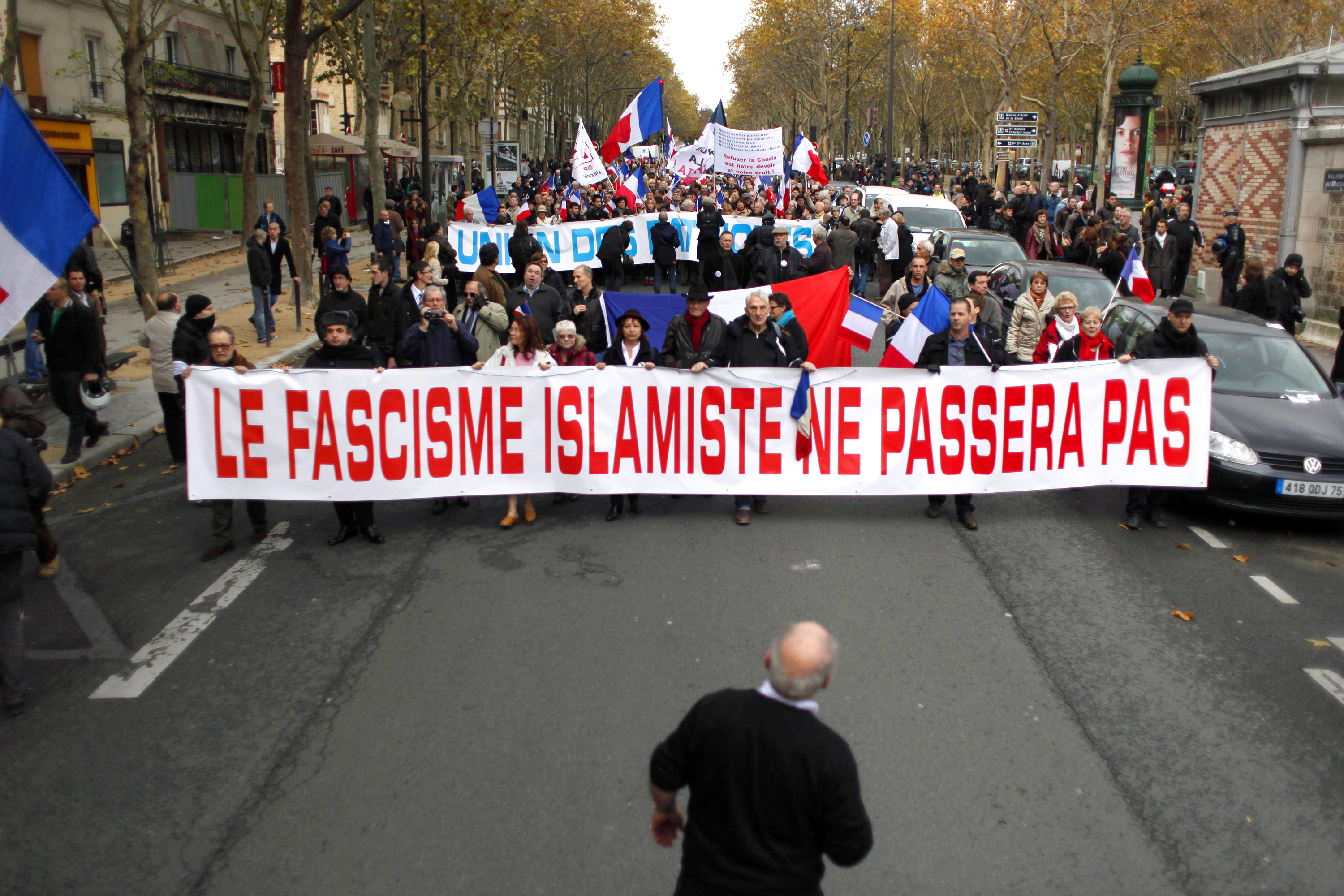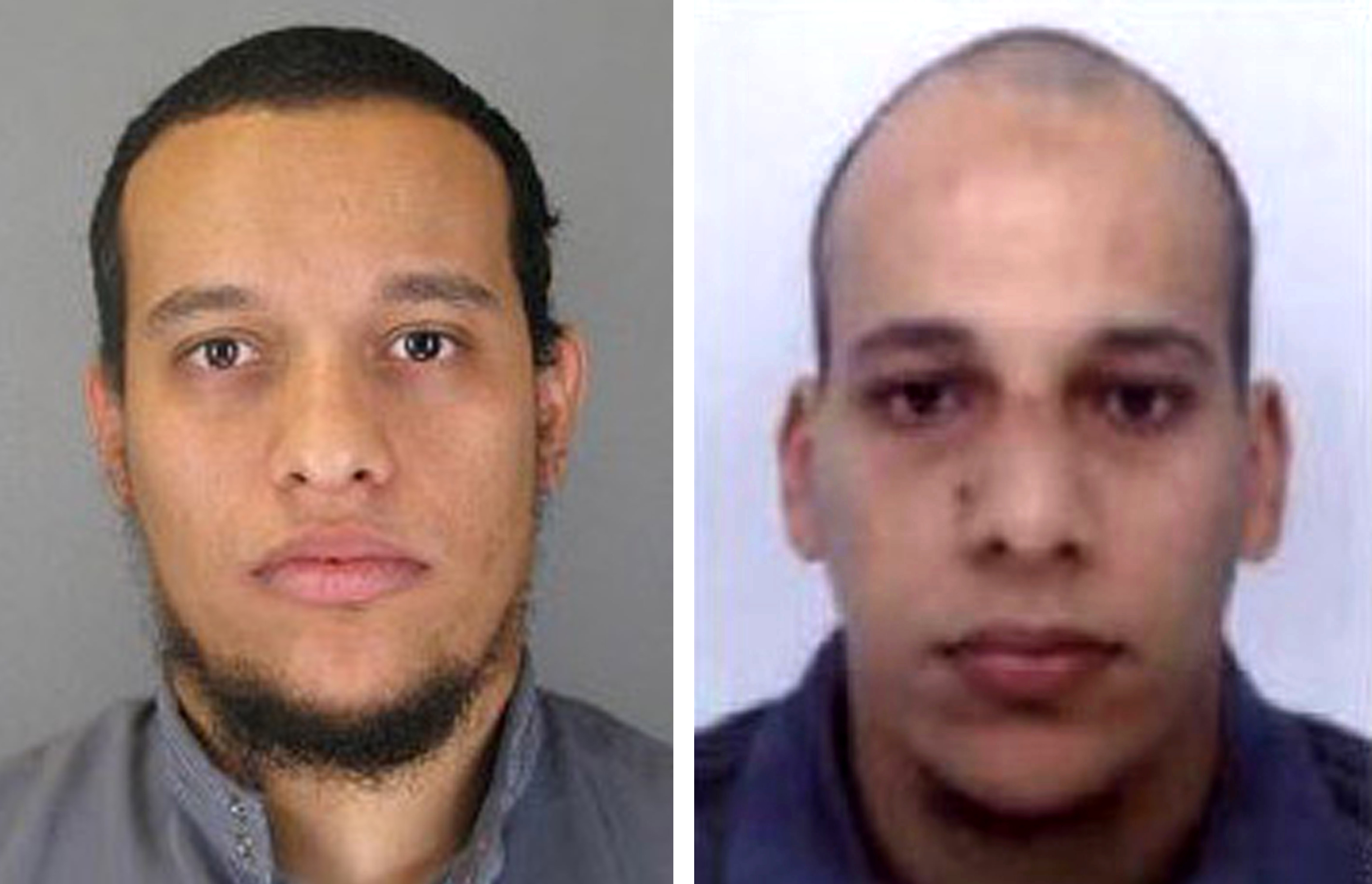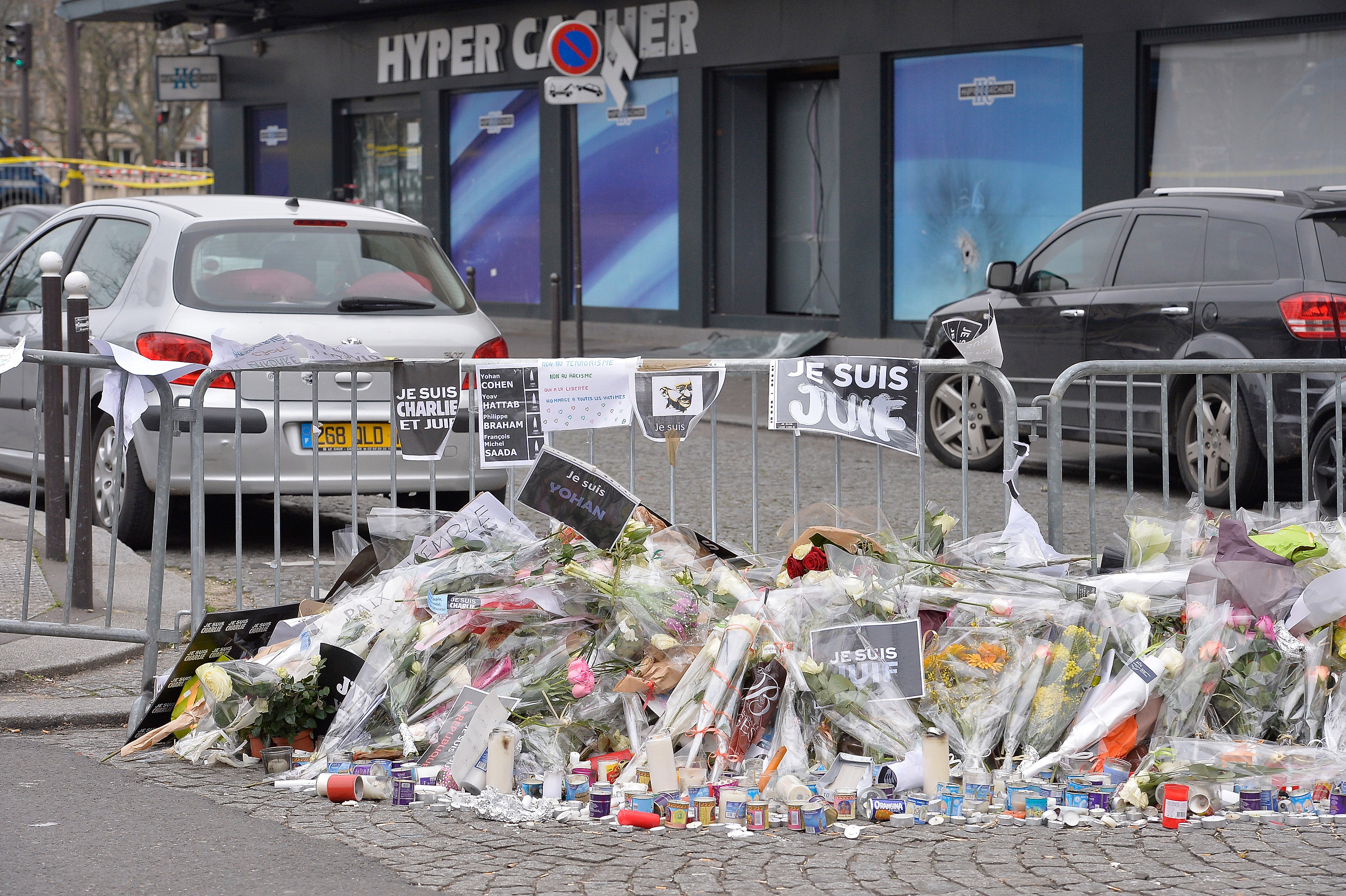The road to radicalization
Born in France, the Paris killers grew up on the margins of society

A free daily email with the biggest news stories of the day – and the best features from TheWeek.com
You are now subscribed
Your newsletter sign-up was successful
Along the pathways of Paris' picturesque Buttes-Chaumont park, with its hills, lake, and faux Roman temple, Chérif Kouachi, a local pizza deliveryman, would regularly go jogging. Past the waffle stands, pavilion restaurant, picnickers, and children's play areas, there are always runners working up a sweat up on the park's steep inclines. But Kouachi and his small group of jogging mates had a particular purpose, a criminal court would later hear: They were keeping fit for foreign jihad.
The group of Parisian friends were all in their early 20s; many had met at a local middle school; most had poor school records and chaotic family lives. They came from deprived corners of the surrounding 19th arrondissement in northeastern Paris, a mix of gentrified apartment buildings, working-class streets, and a patchwork of high-rises troubled by gang turf wars.
The dozen or so friends, mainly unemployed or in small jobs, were involved in petty crime, theft, drugs, trafficking. But then they met a young, charismatic guru figure at a local mosque. Also in his 20s, and only a year older than Kouachi, Farid Benyettou was working as a cleaner but holding discussion groups in his flat about fighting jihad. It was 2004, the aftermath of the Iraq War, and gradually the friends resolved to go to Iraq to fight the Americans.
The Week
Escape your echo chamber. Get the facts behind the news, plus analysis from multiple perspectives.

Sign up for The Week's Free Newsletters
From our morning news briefing to a weekly Good News Newsletter, get the best of The Week delivered directly to your inbox.
From our morning news briefing to a weekly Good News Newsletter, get the best of The Week delivered directly to your inbox.
This little group, which in court was described as staggeringly amateurish, was deemed by Le Monde "the first jihad school in France." After jogging sessions and a quick demonstration of how to hold a Kalashnikov, a handful of the friends had left at various points to fight holy war in Iraq. Three were killed, others returned badly maimed, one minus an arm and an eye. Others were thwarted in their plans to leave by the French police.
Kouachi, who scraped a living delivering for El Primo Pizza on the other side of the ring road that serves as a moat around Paris, was arrested in January 2005 on his way to catch a flight to Damascus, believed to be ultimately heading for Iraq.
He told the court he was relieved to have been stopped because he hadn't actually wanted to go. "The more my departure approached, the more I wanted to go back on it," he told the judge. "But if I chickened out, I was scared I would look like a coward." He got a relatively light prison sentence, three years with 18 months suspended, as there was little hard evidence against him except a plane ticket for Damascus. To lawyers, he seemed to be a fragile young kid with few real political ideas, psychologically manipulated into a sect-like group. After his release, he settled down and got a job on a supermarket fish counter.
A decade later Kouachi, 32, and his older brother Saïd, 34, led the deadliest terrorist attack on France in 50 years, beginning by walking into the office of the satirical magazine Charlie Hebdo and opening fire with Kalashnikovs, killing 12, including a Muslim policeman on the street outside. After a three-day reign of terror, the brothers were shot dead by police following a hostage drama north of Paris. In parallel, Amédy Coulibaly, 32, first shot a policewoman and then held hostages at a kosher supermarket in east Paris, killing four, before police shot him dead.
A free daily email with the biggest news stories of the day – and the best features from TheWeek.com
All three gunmen were French, from the Paris area, raised and radicalized there. The French government now faces serious questions about how men with convictions, jail terms, and a place on the U.S. blacklist slipped through the net. The government has said some 1,400 people living in France had joined the jihadi cause in Syria or Iraq or were planning to, and about 70 French citizens or residents have died in terrorist ranks in Syria and Iraq.
But the radicalization of the Kouachis and Coulibaly began long before the Syria crisis.

Chérif Kouachi was born in 1980 in Paris' diverse 10th arrondissement, which stretches from the Place de la République to the Gare du Nord. He was one of five children of Algerian immigrant parents. A source who knew Chérif Kouachi when he was arrested on his way to catch the flight to Damascus in 2005 said, "He was abandoned very young; it's not clear if his parents couldn't look after the children or if his parents died. But he was put in care homes early — before the age of 10." The care homes were far from Paris, and his childhood was described as chaotic.
When he reached 18, he returned to the northeast of Paris with his elder brother. He had a sports education qualification but a poor school record and no other family support. When he became involved in the Buttes-Chaumont group of friends, he was back in Paris but living precariously.
"He was living almost like a homeless person, staying with someone, but it was more of a mattress on the floor than a real home," the source said. "He was very clearly marginalized. He was immature, just out of adolescence. He wasn't vindictive…He went to the mosque, but went clubbing, made rap music, smoked hash, drank. He wasn't a hermit."
It seemed at the time that Benyettou, the young guru figure by whom Kouachi was enthralled, used methods similar to those of a sect. "He made him feel important; he listened to him, recognized him as an individual…Chérif Kouachi was fragile, looking for a family…He didn't have a family he could turn to for support," the source said.
When he was arrested over the attempted flight to Syria and Iraq, Kouachi described himself to investigators as a "ghetto Muslim," according to Le Monde. "Before, I was a delinquent. But after, I felt great. I didn't even imagine that I could die," he told the court. A French TV documentary on radicalized youth showed footage of him rapping. "It's written in the texts that it's good to die as a martyr," he said.
The Buttes-Chaumont group's jihadi aspirations were directly linked to the second Iraq War, in 2003. They would sit in apartments watching footage of the U.S.-led invasion. "Everything I saw on TV, the torture in Abu Ghraib prison, all that, that's what motivated me," one of Kouachi's friends later said at trial.
But under Jacques Chirac, France had refused to intervene in the Iraq War, and the young cell's stance wasn't really a movement against the French state. It was more a rage directed against the U.S. Some of the group stated that jihad wasn't done in France. The focal point was fighting a foreign invader in Iraq.
"They were the pioneers of French jihadiism," said Jacques Follorou, a journalist at Le Monde. "This was a group of kids with very little education, without a political project, inexperienced, de-socialized, on the margins, delinquent, unemployed. In their mentor, who was their own age, they had a manipulator. They were looking for identity." When the young men were arrested, prison gave them access to a universe never known before. "If the Buttes-Chaumont was an informal school of jihad, prison was the superior diploma," said Follorou.
Kouachi was held on remand in the notorious Fleury-Mérogis prison south of Paris, a supersize decaying concrete megajail that is Europe's largest prison. Built in the 1960s, it was supposed to be a model for incarceration but became a byword for tension, inmate violence, drugs, suicide, and even the hostage taking of prison officers.
It is now being refurbished. But at the time Kouachi was placed there pending trial, it was suffering over 150 percent overcrowding and Victorian conditions. In 2008, prisoners smuggled out video footage of the conditions, showing violence between inmates in the exercise yard, leaking ceilings, moss on walls, fetid toilets, birds nesting in the decaying walls, stagnant water, and freezing conditions. "Even homeless people are better off than us," one said.
One of the prisoners involved in publicizing the terrible conditions was Amédy Coulibaly. He was an armed robber on his third sentence, this time for robbery, receiving stolen goods, and using false license plates. Coulibaly met Kouachi inside the prison, and they became close during seven months on the same wing. Less than a decade later, Coulibaly joined the Kouachis in last week's terrorist attacks, killing a police officer and, later, four hostages in a kosher supermarket.

Coulibaly, known as "Doly," was born in France to parents from Mali. He was the only boy, with nine sisters, and grew up on a notorious housing estate, La Grande-Borne, in Grigny, south of Paris. Built as a 1960s social utopia, it has become known for poverty, drug dealing, arms trafficking, youth criminality, and attacks on police, as well as arson attacks on public buildings. If employers saw the estate's address on a CV, it was likely the job application would go straight into the trash.
In 2005, France's suburban tower blocks erupted in the worst riots in modern French history after the deaths of two boys who had been running from police on the other side of Paris. But it was in Grigny that the tension of the riots escalated to a higher level, when youths on the estate fired the first gunshots at police.
Like other troubled estates, the Grande-Borne had a youth culture of fast money, robbery, drugs, and guns. Damien Brossier, a lawyer in nearby Évry, remembers Coulibaly as a "hot-headed" and daring teenager whom he twice defended in armed robbery cases more than a decade ago. He said Coulibaly's father was from a modest background and had come to France to work in poorly paid jobs. Like many young kids in the area, his son didn't want the same life; he fell between his parents' model and the reality of life on the estate.
In prison together, Kouachi and Coulibaly found not only friendship but a mentor, Djamel Beghal, who radicalized them. The portly Beghal, serving a 10-year sentence for a plot to bomb the U.S. Embassy in Paris, had once been a regular worshipper at Finsbury Park mosque in London and a disciple of the radical preachers Abu Hamza and Abu Qatada. He came to be seen by U.K. and French intelligence as one of al Qaida's leading recruiters in Europe.
When Chérif Kouachi left prison, he appeared to want to get his life together; he married and got the fish counter job on the outskirts of Paris. Benyettou, the Buttes-Chaumont guru, later began to train as a nurse. Coulibaly got an apprentice contract at a Coca-Cola factory and in 2009, despite his criminal record, was one of 500 young people invited to the Élysée Palace to meet then-President Nicolas Sarkozy at an event about youth unemployment.
But less than a year after that reception, police swooped in. They suspected a plot to free an Algerian Islamist, Smain Ait Ali Belkacem, who was sentenced to life imprisonment in 2002 for a bombing at the Musée d'Orsay railway station in Paris in October 1995 that left around 30 injured. Beghal's disciples were arrested over conspiring in the plot.
Surveillance showed Kouachi and Coulibaly had been visiting Beghal, where he was under house arrest in rural central France. Coulibaly would later take selfies on countryside training trips and photograph his partner, Hayat Boumeddiene, firing a crossbow while wearing a niqab. Boumeddiene, who had married Coulibaly in a religious ceremony, grew up in care homes outside Paris after her mother died and her father couldn't look after the family. She is on the run and is believed to have traveled to Syria.
Kouachi kept silent during police questioning. Because of a lack of evidence, the case against him was dropped. Coulibaly got five years in prison for the escape plot. He was described as a model inmate and was released in spring 2014. Boumeddiene was there to meet him, and they resumed life together. Less than a year later, he would be part of one of France's worst terrorist attacks in decades.
A witness account from the kosher grocery holdup described how, after shooting four of his hostages, whose bodies lay where they had fallen, Coulibaly nonchalantly made himself a sandwich from the supplies in the store, telling the remaining hostages to do the same.
Angelique Chrisafis / Guardian News & Media Ltd. Excerpted from the original. Reprinted with permission.
-
 How to navigate dating apps to find ‘the one’
How to navigate dating apps to find ‘the one’The Week Recommends Put an end to endless swiping and make real romantic connections
-
 Elon Musk’s pivot from Mars to the moon
Elon Musk’s pivot from Mars to the moonIn the Spotlight SpaceX shifts focus with IPO approaching
-
 ‘Hong Kong is stable because it has been muzzled’
‘Hong Kong is stable because it has been muzzled’Instant Opinion Opinion, comment and editorials of the day
-
 'Once the best in the Middle East,' Beirut hospital pleads for fuel as it faces shutdown
'Once the best in the Middle East,' Beirut hospital pleads for fuel as it faces shutdownSpeed Read
-
 Israeli airstrikes kill senior Hamas figures
Israeli airstrikes kill senior Hamas figuresSpeed Read
-
 An anti-vax conspiracy theory is apparently making anti-maskers consider masking up, social distancing
An anti-vax conspiracy theory is apparently making anti-maskers consider masking up, social distancingSpeed Read
-
 Fighting between Israel and Hamas intensifies, with dozens dead
Fighting between Israel and Hamas intensifies, with dozens deadSpeed Read
-
 United States shares 'serious concerns' with Israel over planned evictions
United States shares 'serious concerns' with Israel over planned evictionsSpeed Read
-
 Police raid in Rio de Janeiro favela leaves at least 25 dead
Police raid in Rio de Janeiro favela leaves at least 25 deadSpeed Read
-
 Derek Chauvin's attorney files motion for new trial
Derek Chauvin's attorney files motion for new trialSpeed Read
-
 At least 20 dead after Mexico City commuter train splits in overpass collapse
At least 20 dead after Mexico City commuter train splits in overpass collapseSpeed Read